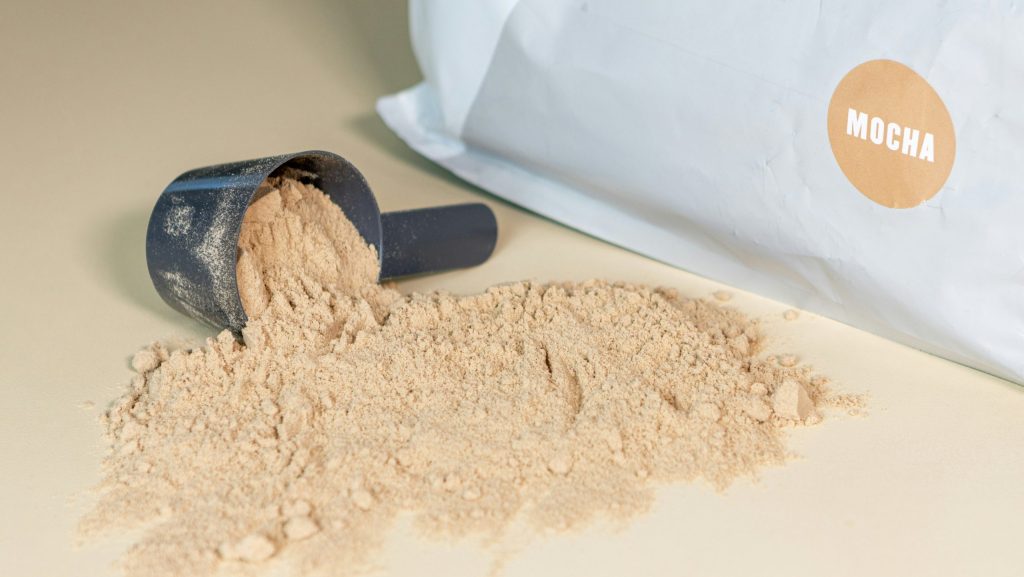Table of Contents
Nutrition plays a critical role in enhancing fitness outcomes, with pre-workout protein shakes being a key component for athletes and fitness enthusiasts aiming for improved workout performance and muscle recovery. The consumption of these shakes before exercise is supported by scientific research, indicating their effectiveness in boosting muscle growth, accelerating recovery times, and providing sustained energy during workouts. This introduction examines the benefits of pre-workout protein shakes, offering evidence-based insights and practical recommendations.
The article covers the following essential topics:
- Introduction to Pre-Workout Protein Shakes: Details the significance of protein as part of pre-workout nutrition.
- Benefits of Protein Intake Before Workouts: Describes the advantages of consuming protein prior to exercising, including muscle synthesis and energy levels.
- Optimal Protein Types and Amounts: Discusses the best types of protein for pre-workout consumption and how much should be consumed.
- Pre-Workout Protein Shake Recipes: Provides recipes for nutritious shakes ideal for pre-workout consumption.
- Comparing Pre and Post-Workout Protein Intake: Evaluates the differences and benefits of consuming protein before versus after workouts.
Pre-workout protein shakes offer a convenient and efficient way to support muscle synthesis, improve energy production, and reduce recovery times. By incorporating these shakes into their dietary regimen, individuals can optimize their workout performance and accelerate progress towards their fitness goals. Various types of proteins, including whey, casein, and plant-based options, are available, allowing for customization based on dietary preferences and specific fitness objectives.
Understanding the optimal amounts of protein to consume before workouts is crucial for maximizing the benefits of pre-workout nutrition. This article provides guidelines for protein intake, ensuring readers can make informed decisions about their pre-workout meals. Additionally, it features recipes for protein shakes that are both delicious and beneficial for workout performance.
“Consuming protein shakes before workouts can significantly improve strength and endurance levels.”
The comparison between pre and post-workout protein intake highlights the unique advantages of each timing. Personalizing protein intake based on individual goals, workout intensity, and personal health considerations is vital for achieving optimal fitness results.
Incorporating pre-workout protein shakes into one’s fitness routine is an evidence-based strategy for enhancing workout efficacy and achieving fitness goals more effectively. This article aims to equip readers with the knowledge necessary to optimize their pre-workout nutrition, offering detailed information on the benefits, types, and optimal intake of pre-workout protein.
Introduction to Pre-Workout Protein Shakes
Protein is essential for muscle repair, growth, and overall health, particularly in relation to fitness activities. The strategic use of pre-workout protein shakes is supported by scientific evidence, highlighting their role in enhancing muscle performance and recovery. These nutritional supplements offer an effective means to supply the body with necessary proteins before physical activities.
Importance of Protein in Fitness
Muscles require protein for effective growth, repair, and maintenance. Protein supplies amino acids necessary for muscle protein synthesis, the process critical for muscle building and repair following exercise-induced stress. Adequate protein intake is essential for maintaining muscle mass and optimizing physical performance. Insufficient protein can lead to muscle atrophy and diminished workout effectiveness.
Convenience of Protein Shakes
Pre-workout protein shakes provide a convenient solution for meeting the body’s protein needs prior to exercise. They are particularly beneficial for those with limited time or inability to consume a full meal before exercise sessions. Protein shakes facilitate rapid delivery of high-quality protein, making essential amino acids available for immediate use by muscles, supporting energy needs, and promoting muscle synthesis.
Visual Table: Protein Types and Their Benefits
| Protein Type | Benefits | Ideal For |
|---|---|---|
| Whey | Fast absorbing, supports muscle repair | Post-workout recovery |
| Casein | Slow digesting, provides sustained release of amino acids | Pre-bedtime to aid overnight muscle recovery |
| Plant-based | Dairy-free, rich in other nutrients | Individuals with dietary restrictions |
Optimal Protein Intake Timing
Timing protein intake around workout sessions is crucial for maximizing muscle synthesis and recovery. Consuming protein shakes 30 to 60 minutes before workouts ensures amino acids are available for muscle energy and repair during exercise. This timing helps optimize the body’s use of protein, enhancing workout performance and post-exercise recovery.
“Research indicates that consuming protein 30 to 60 minutes before exercise can significantly enhance muscle protein synthesis compared to post-workout intake.”
Pre-workout protein shakes are an effective nutritional strategy for anyone looking to enhance muscle performance and recovery. The selection of protein type and timing of intake are key factors in maximizing the benefits of pre-workout nutrition. By incorporating protein shakes into the pre-workout routine, individuals can improve their workout efficiency and facilitate quicker recovery, supporting overall fitness goals. Future discussions will further explore the benefits of protein intake and methods to optimize pre-workout nutrition for enhanced fitness outcomes.

Benefits of Protein Intake Before Workouts
Protein intake before workouts is critical in sports nutrition, offering significant benefits for muscle synthesis, energy maintenance during exercise, and acceleration of recovery times. By ensuring a timely supply of essential nutrients, athletes can optimize their performance and improve their physical development.
Improved Muscle Synthesis
Protein is fundamental for the repair, growth, and maintenance of muscle tissue. The process of muscle protein synthesis requires a readily available supply of amino acids, which are provided through dietary protein. When protein is consumed before workouts, it ensures that amino acids are present in the bloodstream as soon as muscle breakdown begins, facilitating immediate repair and growth. This strategic timing significantly enhances muscle synthesis rates, contributing to greater muscle mass and strength over time.
- Amino acids are necessary for muscle repair and growth.
- Pre-workout protein intake accelerates muscle synthesis.
- Ensures immediate availability of essential components for muscle repair.
Enhanced Energy Levels
The role of protein extends beyond muscle repair to include energy provision during workouts. Amino acids from protein can act as an energy source when glycogen stores are depleted, particularly during prolonged or intense exercise sessions. This capacity of protein to sustain energy levels can prevent performance decline, enabling athletes to maintain optimal intensity and endurance throughout their workouts.
“Amino acids from protein can serve as an alternative energy source during long-duration or high-intensity training, helping athletes maintain performance levels.”
The stabilization of blood sugar levels through pre-workout protein consumption also contributes to consistent energy availability, further supporting sustained workout performance.
Faster Recovery Times
Accelerating recovery is another key benefit of consuming protein before workouts. By starting the muscle repair process even before exercise ends, protein intake can reduce the intensity and duration of delayed onset muscle soreness (DOMS). This quicker recovery allows for more frequent training sessions, contributing to faster progress and improved adaptation to training stimuli.
Incorporating protein into pre-workout nutrition is a strategic approach that supports muscle synthesis, energy levels during exercise, and recovery. By optimizing the timing of protein intake, athletes and fitness enthusiasts can enhance their performance, increase muscle growth, and shorten recovery periods. The benefits of pre-workout protein intake highlight its importance in a comprehensive sports nutrition plan, reinforcing the need for careful nutritional planning in the pursuit of fitness and athletic goals.
Optimal Protein Types and Amounts
The selection of dietary proteins and the quantification of intake are pivotal for individuals aiming to enhance their physical condition and recovery processes. This section details the various protein sources available, guidelines for personal protein consumption, and techniques to increase protein utilization, all aimed at supporting nutritional goals alongside muscle development and recuperation.
Types of Protein
Different proteins offer unique benefits, making the choice of protein source an important consideration for dietary planning. Whey protein is valued for its quick absorption rate, facilitating rapid recovery post-exercise by supplying muscles with essential amino acids. Casein protein, which digests slowly, provides a prolonged release of amino acids, ideal for sustaining muscle repair during sleep. For those with specific dietary needs, such as vegans or individuals with lactose intolerance, plant-based proteins from peas, rice, and hemp are excellent alternatives that also offer additional nutritional benefits.
Visual Table: Protein Types and Their Benefits
| Protein Type | Digestion Rate | Ideal Usage |
|---|---|---|
| Whey | Fast | Post-workout recovery |
| Casein | Slow | Pre-bedtime |
| Plant-based | Variable | Throughout the day, especially for dietary restrictions |
Determining the Right Amount of Protein
The protein requirement for an individual is influenced by several factors, including body weight, level of physical activity, and specific fitness goals. General recommendations suggest an intake of 1.2 to 2.0 grams of protein per kilogram of body weight per day for active individuals. This range is designed to support muscle repair and growth efficiently. Tailoring protein intake to align with specific objectives, such as muscle mass enhancement or endurance training, ensures the nutritional support for desired outcomes.
“Individuals engaging in regular physical activity may require 1.2 to 2.0 grams of protein per kilogram of body weight daily, underscoring the tailored approach needed for dietary planning.”
Maximizing Protein Absorption
Optimizing the body’s capacity to absorb and utilize protein is crucial for muscle development and recuperation. Enhancing protein absorption can be achieved through strategic meal composition, such as combining protein with carbohydrates, which can expedite amino acid transport into muscle cells. Distributing protein consumption evenly across meals throughout the day promotes consistent muscle protein synthesis and can prevent muscle catabolism. Proper hydration is also essential for efficient protein metabolism, highlighting the need for adequate fluid intake.
Effective protein utilization involves choosing suitable protein sources, calculating precise intake needs, and adopting methods to improve absorption. This approach not only supports muscle growth and recovery but also contributes to the overall achievement of fitness and health objectives. By prioritizing informed decisions about protein in diet planning, individuals can significantly enhance their nutritional regimen, paving the way for optimized physical performance and recovery.

Pre-Workout Protein Shake Recipes
Pre-workout protein shakes serve as an essential nutritional strategy for enhancing physical performance and recovery. These shakes provide a convenient and effective way to meet your body’s protein requirements before engaging in exercise, supporting muscle growth and energy levels.
“Bananas in protein shakes not only add natural sweetness but also provide potassium, which can help prevent muscle cramps during workouts.”
Simple and Nutritious Recipes
Pre-workout protein shakes can be tailored to suit individual tastes and nutritional needs. Here are two foundational recipes designed to optimize pre-workout nutrition:
- Classic Banana and Whey Protein Shake: This shake combines the quick-absorbing properties of whey protein with the natural energy from bananas, offering a balanced blend of protein, carbohydrates, and healthy fats.
- Berry and Spinach Power Smoothie: Leveraging plant-based protein, this smoothie incorporates a variety of vitamins and antioxidants from berries and spinach, making it an ideal choice for a nutrient-rich pre-workout boost.
Key Ingredients and Their Benefits
The effectiveness of a pre-workout protein shake largely depends on its ingredients. Here’s a closer look at the benefits provided by common shake components:
- Protein Powders: Serve as the primary source of protein, essential for muscle repair and growth.
- Bananas: Offer quick-digesting carbohydrates for immediate energy and are rich in potassium to support muscle function.
- Berries: High in antioxidants, berries help reduce inflammation and support overall health.
- Leafy Greens: Such as spinach, are packed with iron and vitamins to aid in oxygen transport and energy production.
- Nuts and Seeds: Provide healthy fats and fiber, contributing to sustained energy release and satiety.
Customization Tips for Dietary Needs
Adapting protein shake recipes to meet specific dietary preferences ensures that everyone can enjoy the benefits of a pre-workout nutritional boost:
- For Vegan Diets: Choose plant-based protein powders and substitute dairy milk with almond, soy, or oat milk.
- For Gluten-Free Diets: Verify that all ingredients, including protein powders, are certified gluten-free.
- For Low-Carb or Keto Diets: Focus on shakes with high protein and healthy fats, minimizing high-carb fruits and additives.
Pre-workout protein shakes are a versatile and efficient way to support fitness goals, offering customizable options to enhance muscle performance and recovery. By combining nutritious ingredients with tailored recipes, individuals can ensure their pre-workout nutrition precisely aligns with their dietary needs and workout objectives. Exploring different recipes and ingredient combinations can lead to discovering the perfect shake to complement any fitness routine.
Comparing Pre and Post-Workout Protein Intake
Protein intake surrounding exercise is crucial for optimizing physical performance and accelerating recovery. This comprehensive examination focuses on the timing of protein consumption, comparing the benefits associated with pre- and post-workout intake to guide individuals in tailoring their nutritional strategies.
“Consuming protein within 30 minutes after exercising can increase muscle synthesis by over 50% compared to waiting until the next meal.”
Pre-Workout Protein Advantages
Protein consumed before exercising serves to prepare the body for the demands of physical activity, supplying essential amino acids for muscle endurance and strength. This proactive nutrition strategy supports an enhanced metabolic rate and reduces the risk of muscle damage during exercise.
Key advantages include:
- Preparation of muscles for exertion
- Mitigation of muscle damage risk
- Enhancement of metabolic rate
Post-Workout Protein Benefits
Following exercise, protein intake is vital for initiating the muscle repair process and fostering growth. The post-exercise window is a critical period during which the body is most receptive to nutrient uptake, making it an ideal time to consume protein to replenish depleted energy stores and accelerate recovery.
Significant benefits of post-workout protein consumption include:
- Facilitation of muscle repair and growth
- Replenishment of depleted energy stores
- Reduction in recovery time
Personalizing Your Protein Strategy
Optimal protein intake timing varies by individual goals, exercise intensity, and dietary needs. Whether the focus is on endurance training or muscle building, understanding how to adjust protein consumption timing can significantly impact outcomes.
Strategies for personalization:
- Assess fitness goals and workout intensity: Tailor protein timing to support specific objectives.
- Consider dietary restrictions or preferences: Choose protein sources that align with dietary needs.
- Experiment with timing: Find the most effective protein intake timing for your body.
Both pre- and post-workout protein consumption play essential roles in supporting fitness objectives, from enhancing performance to improving recovery. Individualized strategies for protein timing, considering personal goals and dietary needs, can optimize the effectiveness of workouts and contribute to better muscle health and growth. Continuous exploration and adjustment of protein intake strategies are recommended to achieve and maintain optimal fitness results.

Conclusion: Benefits of Pre-Workout Protein Shakes
The strategic role of protein in fitness nutrition has been dissected to reveal its critical impact on enhancing workout performance and recovery. This article systematically explored pre-workout protein intake, optimal protein types and amounts, and creative recipe formulations to underscore the necessity of a personalized nutritional approach in achieving peak physical performance.
Key Insights from the Article
- Pre-workout protein shakes are vital for improving workout performance and muscle health.
- Consuming protein before workouts aids muscle synthesis and maintains energy levels.
- Identifying and consuming the optimal types and amounts of protein are crucial for fitness goals.
- Customizable protein shake recipes provide practical and enjoyable pre-workout nutrition options.
- The timing of protein intake, whether before or after workouts, should be tailored to individual fitness objectives and needs.
Protein consumption, particularly surrounding exercise sessions, is paramount for those aiming to enhance their fitness outcomes. Detailed within this article are the benefits of protein intake before workouts, highlighting its role in preparing the body for exercise and supporting subsequent recovery. The selection of appropriate protein types and the calculation of adequate amounts are essential steps in formulating an effective nutritional strategy that aligns with specific fitness goals.
Moreover, the exploration of pre-workout protein shake recipes offers a practical guide to preparing nutritious blends that cater to various dietary preferences. These recipes not only serve as a convenient source of nutrition but also encourage culinary creativity and personalization to suit individual taste profiles and health requirements.
“Start integrating these protein strategies into your routine today and feel the difference in your workout performance and recovery tomorrow.”
In comparing the effectiveness of pre- and post-workout protein consumption, the article emphasizes the importance of timing in maximizing muscle repair, growth, and overall recovery. Tailoring protein intake to the unique demands of one’s fitness routine and personal health goals can significantly enhance the efficacy of workouts and contribute to more robust muscle development and endurance.
Incorporating protein strategically into your pre-workout nutrition plan is a foundational aspect of effective fitness planning. The insights provided throughout this discussion offer a blueprint for optimizing your dietary approach to support enhanced physical performance and recovery. By embracing the principles of personalized nutrition, thoughtful planning, and consistent application, you can unlock your full potential and achieve your fitness and health aspirations. Prioritizing informed decisions about protein consumption, based on the comprehensive analysis presented, empowers individuals to navigate their path to optimum fitness with confidence and knowledge.